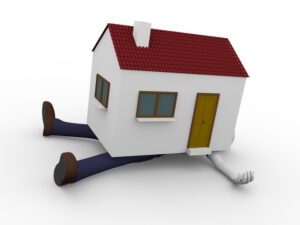Will 7% Mortgages Crush Housing?
The comments below are an edited and abridged synopsis of an article by John Rubino
Between 2020 and 2022, houses in America’s hottest real estate markets went from unaffordable to 50% above unaffordable. Put another way, real estate markets did what would have been impossible in an economy where market forces determined interest rates and home prices.
Central banks globally had lost their minds and money was the cheapest it had ever been. When offered 2.75% 30-year mortgages (low monthly payments), home buyers paid any price and accepted any terms to get houses in hot markets. Private equity predators borrowed even more cheaply and used the proceeds to outbid individual buyers. Prices soared beyond the 2007 housing bubble records.
About six months ago, the financial world found itself with 10% cost-of-living inflation, and decided to go off the easy-money heroin. Interest rates spiked, mortgage rates followed, and the average 30-year fixed rate more than doubled to 6.7%, with more gains apparently coming soon.
Today, even private equity landlords like Blackstone can no longer raise rents enough to justify borrowing to buy more houses. Almost no one can justify buying a house at these levels, which means hardly anyone is trying. Home sales have plunged back to Great Recession crisis levels.
This is bad for the economy. Housing is a big sector financially and an immense one psychologically. All those people who paid $2 million for houses now worth $1.2 million are going to skip their next vacation and Tesla trade-up. The economy, already suffering from tech layoffs and supply chain disruptions (not to mention all those industrial accidents), will be without a single-growth engine.

